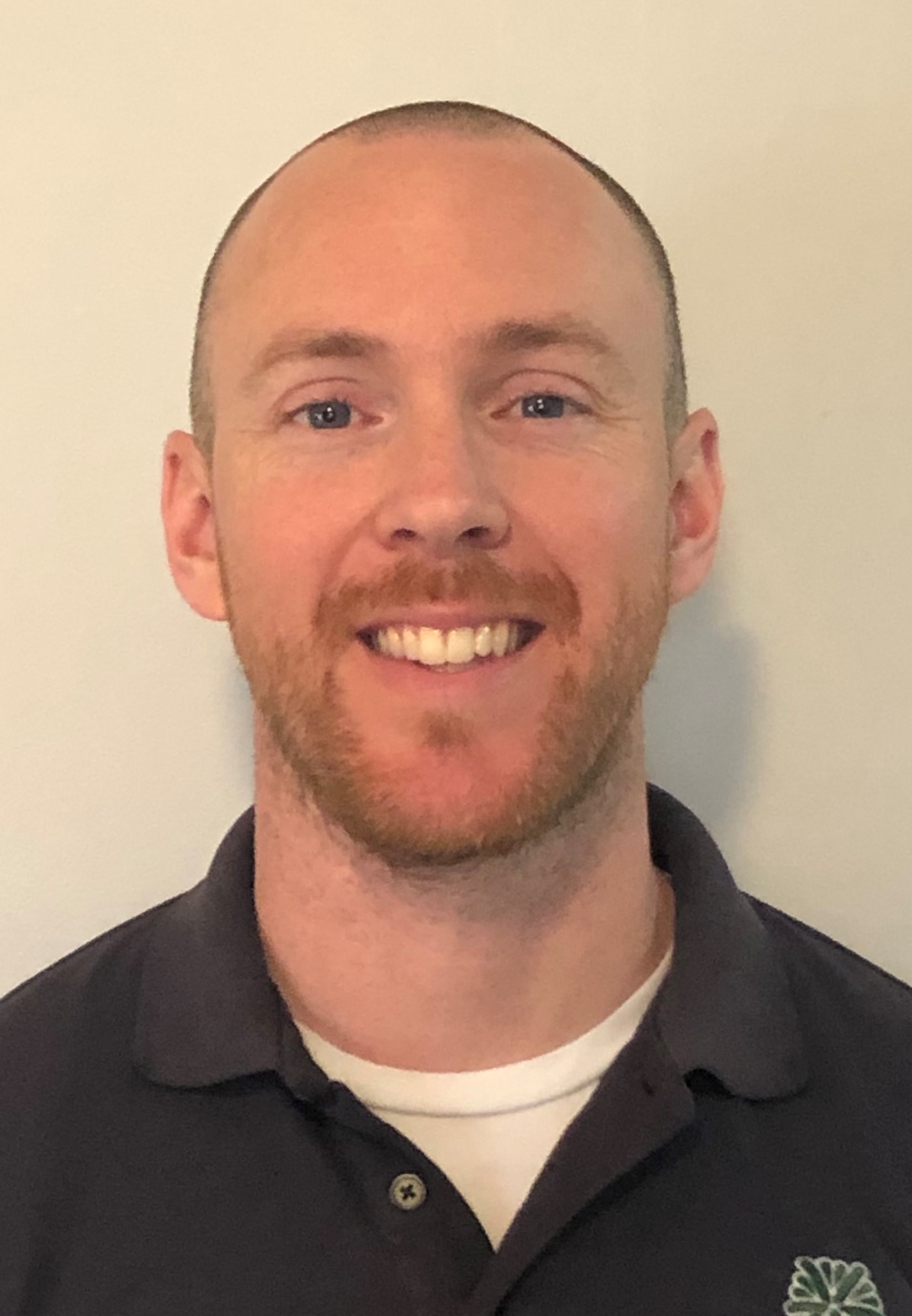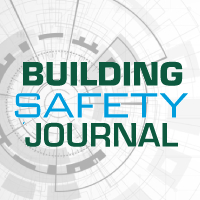
Masters of Code: Aaron Dodds achieves the gold standard of code certification
 It’s considered the Ph.D. of building safety codes certification. The Master Code Professional (MCP) is the highest level of designation the International Code Council offers and is the “gold standard” for demonstrating proficiency in the code profession. The Code Council has certified thousands of individuals, but only a small select number have attained this high level of achievement: just over 800 MCP professionals worldwide. Their achievements are a benefit to the code enforcement profession as well as their communities.
It’s considered the Ph.D. of building safety codes certification. The Master Code Professional (MCP) is the highest level of designation the International Code Council offers and is the “gold standard” for demonstrating proficiency in the code profession. The Code Council has certified thousands of individuals, but only a small select number have attained this high level of achievement: just over 800 MCP professionals worldwide. Their achievements are a benefit to the code enforcement profession as well as their communities.
To obtain this level of certification requires and demonstrates a commitment to the profession, diverse knowledge of codes and a high level of self-initiative. Aaron Dodds is the latest to join the elite group of Master Code Professionals. In this exclusive feature for the Building Safety Journal, we asked Aaron to share his experience on obtaining the MCP designation, highlights of his professional career and any insights or advice he has concerning the industry.
Aaron Dodds
Building Inspector
Building Services Department
Cedar Rapids, Iowa, United States
International Code Council member for eight years
ICC Region III – Iowa Association of Building Officials
BSJ: What led you to pursue and obtain MCP certification?
Dodds: I’ve always been someone who loves learning new things and enjoys a challenge. Shortly after starting in the building department, I learned about the ICC certification process and the many opportunities to expand my knowledge. I’ve had the pleasure of working with many very knowledgeable code professionals over the years and decided early on that I wanted to work to achieve that same level of competence and obtaining the MCP designation became a focusing goal for me in that process.
BSJ: How did you study and prepare for the many exams you took as a part of your MCP designation?
Dodds: I started by trying to set a reasonable goal of obtaining at least 2 new certifications each year. This allowed time to go through each reference material without trying to learn too much at once. I found the ICC study guides with practice questions very helpful because they force you to get familiar with each codebook and how it’s laid out. I was also very lucky to have great coworkers who helped answer questions when I didn’t understand something or who were working on certifications themselves and would help me study.
BSJ: What does achieving the prestigious MCP status mean to you?
Dodds: To me, it is a tremendous honor to be recognized among a very accomplished group of individuals, but it is ultimately a stepping stone to my overall goal of becoming a more well-rounded building official. If the process of obtaining the MCP designation teaches you anything it’s that it is impossible to know it all. This is a never-ending learning process. The code is always updating and there is far too much information out there to ever feel comfortable with everything. I believe the important lesson is that there is always more to learn and that we should always strive for continuous improvement.
BSJ: How would you describe the value or benefits that have come with the recognition of your MCP status?
Dodds: I think achieving this level of proficiency gives instant recognition as someone that is committed to upholding the standards of the profession and that has a well-rounded understanding of the codes. Even more so, I think the benefit really comes in the learning process along the way and gaining a better understanding of the big picture.
BSJ: What advice would you offer to those who are considering pursuing an MCP designation?
Dodds: I think having a larger goal to work towards is always something worthwhile. In the beginning, it’s important to start small and with areas you feel more comfortable in. Then as you get familiar with the testing process and navigating the codes, you can start to branch out. The ICC study guides were very helpful for me along the way and I would encourage others to look into these especially for new codes outside their comfort zone. Lastly, I think it’s incredibly helpful to find others in the profession who have been through the testing process to go to for help and to push each other to work towards new certifications. I was very lucky to have a coworker early on in my career already familiar with ICC and the certification process who really helped drive me to achieve the MCP designation. I hope to help him celebrate this achievement in the near future.
BSJ: How long have you been in the industry?
Dodds: 8.5 years
BSJ: What major changes have you seen?
Dodds: While I haven’t been in the industry as long as many others in this line of work, the big changes I have noticed are the emphasis on meeting accessibility requirements and the move towards electronic permitting and plan reviews.
BSJ: What excites you about the future of your industry?
Dodds: I’m excited to see how the use of technology continues to be incorporated in the building industry not only on the inspection and review side but also in the field. I think it’s interesting to see what new methods and materials evolve to fulfill a need. I also think it will be interesting to see the influx of young people in this profession over the near future. I believe it’s been well documented that a large portion of inspectors across the country are nearing retirement age and it will be very important to pass along that institutional knowledge. I think it will be nice to bring in new perspectives and different ideas to help the profession grow.
BSJ: What is one piece of advice that you would give to those starting out in the industry?
Dodds: My biggest piece of advice would be to find a good mentor and become part of your local building official group or regional ICC chapter. Find someone who has experience in your position, has a demonstrated proficiency with the applicable codes and see if they would be willing to be a resource for you to go to when you have questions. If you’re lucky you’ll have someone like this in your office to go to. If not, then reach out to neighboring jurisdictions or to your regional ICC chapter and become a member. There are a number of things you can’t just learn from the books and only come with experience on the job. It is incredibly beneficial to be able to reach out to other code professionals and see how they’ve dealt with similar issues in the past. Code officials always love talking about unique code problems.
BSJ: Building safety is the focal point of our mission here at the Code Council. What is the importance of building safety to you? How has ICC helped you in your career and commitment to public safety?
Dodds: I think most people want to live in a city where properties are safe, accessible, well maintained, and hold their value. Those are all benefits of having a building department and adopting standard building codes. Building safety and the ICC model codes provide the framework to make these happen by ensuring that minimum standards are met concerning things like accessibility, health and general welfare, structural strength, means of egress, and safety to life and property from fire and other hazards.
BSJ: Obtaining all those ICC certifications is quite an accomplishment. What are you going to do now that you have achieved this goal?
Dodds: While it feels good to finally achieve this accomplishment, it is really just a beginning of sorts. Every day I still see something new or learn about a code section I’d overlooked in the past. I hope to continue learning and to become a better resource for my department and community when it comes to applying the codes helping people through the process.
BSJ: Thank you, Aaron, and congratulations. You have definitely been an encouragement to us all in your pursuit of excellence.
To earn the Code Council’s elite MCP designation, a candidate must first pass 10 core Code Council exams plus a number of elective Code Council exams. Typical Master Code Professionals hold 17 or more Code Council certifications. The Master Code Professional designation requires certified individuals to complete an additional 60 hours of Continuing Education Units every three years to maintain active status.
“The Master Code Professional certification is the pinnacle of all Code Council certifications, representing a level of effort, knowledge, and dedication that elevates not only the individual achieving it but the code official profession as a whole,” said Code Council Chief Executive Officer Dominic Sims, CBO.
Master Code Professionals are typically responsible for all technical and management aspects of code enforcement with duties that range from the management of a code enforcement department to the supervision of inspectors and plan reviewers.
“Congratulations to Aaron on achieving this important and significant accomplishment,” said Autumn Saylor, program services manager of the Code Council’s Assessment Center. “I challenge and encourage all code professionals to strive for this level of achievement, and look forward to congratulating more Master Code Professionals in the future.”
To learn more on how you can join this elite group and let us help you open the door to increased professional challenges and career advancement, click here.








